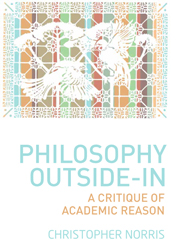Book contents
- Frontmatter
- Contents
- Dedication
- Introduction
- 1 How Not to Defeat Scepticism: Why Anti-realism Won't Do the Trick
- 2 Great Philosophy: Discovery, Invention and the Uses of Error
- 3 Under Which King, Bezonian? Experimental Philosophy versus Thought Experiment
- 4 Outside the Box: On the ‘Extended Mind’ Hypothesis
- 5 Inaesthetics and Transitory Ontology: The Case of Political Song
- 6 Speculative Realism: An Interim Report
- 7 Provoking Philosophy: Shakespeare, Johnson, Wittgenstein, Derrida
- Index
2 - Great Philosophy: Discovery, Invention and the Uses of Error
Published online by Cambridge University Press: 05 March 2014
- Frontmatter
- Contents
- Dedication
- Introduction
- 1 How Not to Defeat Scepticism: Why Anti-realism Won't Do the Trick
- 2 Great Philosophy: Discovery, Invention and the Uses of Error
- 3 Under Which King, Bezonian? Experimental Philosophy versus Thought Experiment
- 4 Outside the Box: On the ‘Extended Mind’ Hypothesis
- 5 Inaesthetics and Transitory Ontology: The Case of Political Song
- 6 Speculative Realism: An Interim Report
- 7 Provoking Philosophy: Shakespeare, Johnson, Wittgenstein, Derrida
- Index
Summary
I
Jonathan Bennett reports J. L. Austin as having once remarked, apropos an idea of Leibniz, that ‘it is a very great mistake’, but that ‘only a very great philosopher could have made it’. One could pursue this comment in various directions, among them its bearing on Austin's work and what it tells us – when strategically placed upfront in his essay ‘Spinoza's Error’ – about Bennett's project of rational reconstruction as applied to sundry great philosophers in the Western canon. Austin, one can safely say, would not for one moment have extended to himself or his own philosophical practice the sort of generous licence for getting things wrong in a big, brave, intellectually ambitious and hence inherently error-prone way that he here extends to Leibniz. ‘Ordinary language’ philosophy as practised most influentially by Austin is, after all, a close-focused and meticulously disciplined enquiry into the manifold possible mistakes that result from our not taking adequate note of how language functions in everyday contexts of usage. Not for him the idea that there might be some honour – some special claim to greatness – in the readiness to risk falling into error or (conceivably) downright nonsense in pursuit of some grand but ultimately false or untenable thesis. Rather it is the business of philosophy to eschew such well-documented sources of large-scale systematic, speculative, or – as the charge sheet typically runs – ‘metaphysical’ error. Best stick to the kinds of common-sense though often highly nuanced and even revelatory wisdom enshrined in our everyday linguistic transactions.
- Type
- Chapter
- Information
- Philosophy Outside-InA Critique of Academic Reason, pp. 61 - 94Publisher: Edinburgh University PressPrint publication year: 2013

